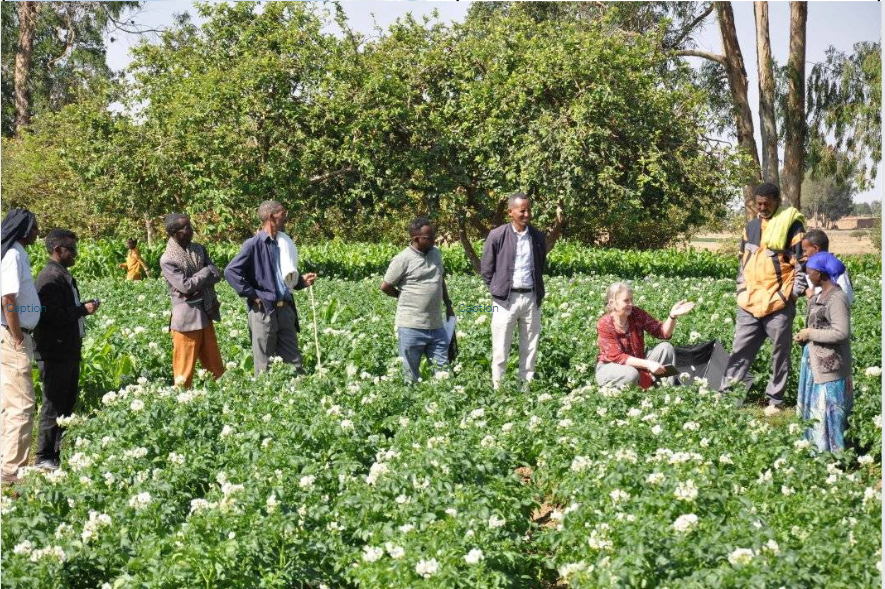The agricultural sector in Tigray, Ethiopia, has long been the backbone of the region’s economy, with a focus on crop production and cattle fattening. However, recent years have brought unprecedented challenges, including the COVID-19 pandemic, desert locust infestations, and the outbreak of conflict in November 2020. The cumulative effect of these adversities has created a dire situation for the agricultural sector in Tigray, with severe implications for food and nutritional security. The destruction of farms and agricultural infrastructure has disrupted the region’s ability to sustainably produce food, while the disruption of the seed system has compromised the availability of essential agricultural inputs.
In response to the challenges facing Tigray’s agricultural sector, there is an urgent need for concerted efforts to rehabilitate and revitalize the region’s farming industry. Recognizing this imperative, the Resilient Agriculture for Inclusive and Sustainable Ethiopian Food Systems (RAISE-FS) project has proactively initiated measures to engage relevant stakeholders in the revitalization of Tigray’s seed system.
A pivotal step in this endeavour was the recent convening of a one-day workshop focused on post-war seed system recovery and transformation. This workshop, conducted in collaboration with the Tigray Bureau of Agriculture, served as a platform for bringing together key stakeholders to collectively assess the current state of the seed system and to devise strategies for its revitalization.
The workshop focused on several key objectives, including evaluating the status of variety development, early generation seed production, and overall seed supply in Tigray. It also delved into the functionality and status of seed-producing cooperatives, unions, and private sectors, while addressing national and regional policy issues related to seed supply.

Presentations at the workshop highlighted achievements, challenges, and opportunities within the seed sector, shedding light on critical areas for intervention. One immediate concern addressed was the collection of emergency seed, with only 10% of the required amount obtained. Development partners committed to securing the remaining funds, while the Tigray Bureau of Agriculture took on the role of facilitation and coordination for a coordinated and impactful effort.
In addition to emergency seed collection, support services such as maintenance of seed cleaners and early-generation seed production were identified as crucial areas for intervention. The workshop outlined specific action plans for addressing these challenges, with various stakeholders taking on responsibilities for implementation.
Policy issues related to regulatory frameworks were also highlighted as crucial for promoting a thriving and sustainable seed sector. The responsibility of managing awareness creation, policy revision, and other seed-related issues was designated to the Bureau of Agriculture.
In conclusion, the workshop provided a platform for stakeholders to collaborate and develop a roadmap for revitalizing the seed system in Tigray. By addressing immediate challenges and laying out a strategic plan for long-term transformation, the workshop set the stage for ongoing efforts to strengthen the region’s agricultural resilience and food security.

As Tigray continues to recover from the recent crises, the revitalization of the seed system stands as a critical step towards transforming the food system and ensuring sustainable agricultural development in the region. The journey towards revitalizing Tigray’s seed system is just beginning, but with collaborative efforts and strategic interventions, it holds the potential to drive positive change and contribute to a more resilient and inclusive food system for the region.
